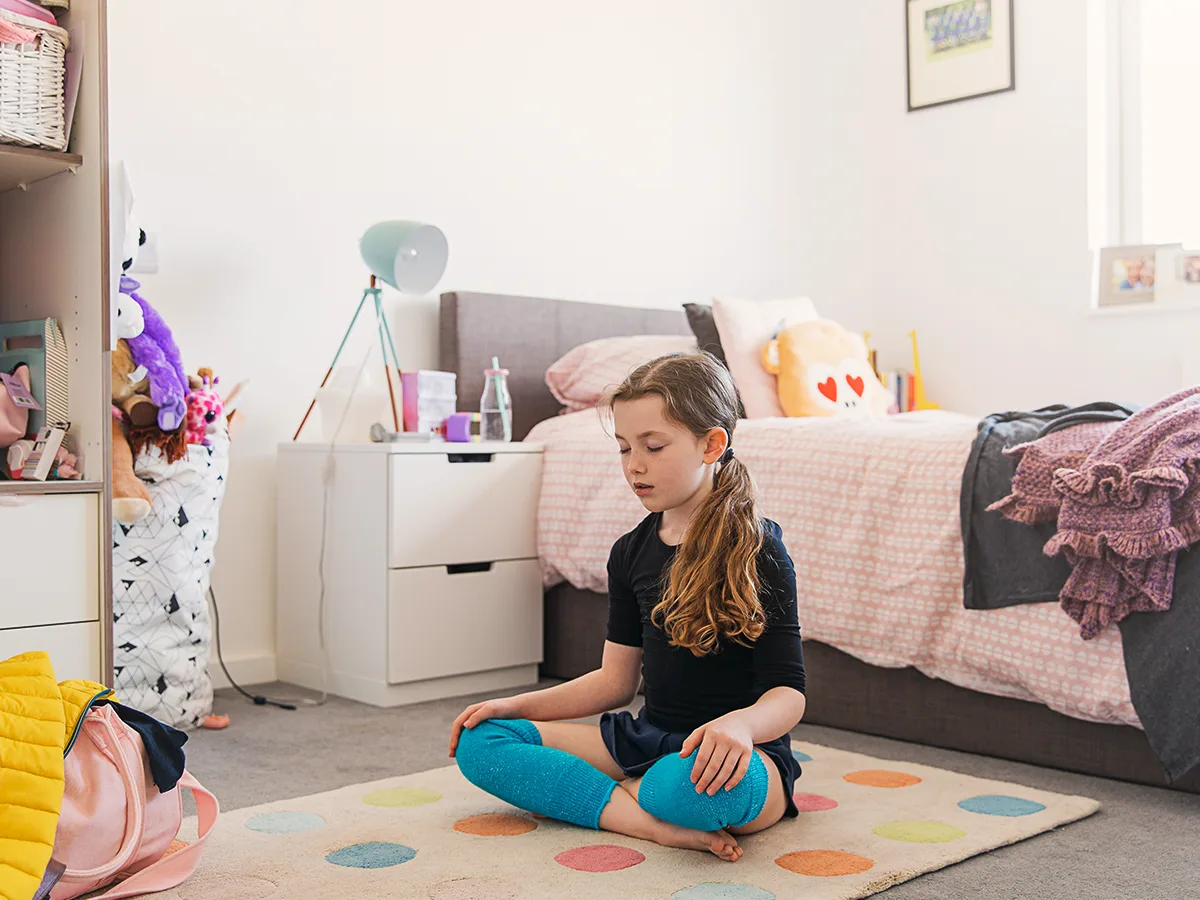7 tips to help your child self-soothe
All kids feel anxious or stressed sometimes, like when they’re getting ready for a big test. But kids who learn and think differently may feel stress more often or more intensely. When kids feel stress for an extended period of time, they may have what’s called chronic stress. And that can lead to anxiety.
Self-soothing techniques can help them relax and regain their sense of control. Here are some ways you can help your child learn to self-soothe.
1. Lead by example.
One way kids learn to self-soothe is by watching how the adults around them deal with stress. The next time you’re feeling overwhelmed, say something to your child like, “I’ve got so much to do today. I need to take a minute to do some stretches. Then I’ll feel better.” You can also ask your child to join you.
2. Do deep breathing exercises.
Deep breathing exercises can stop panic in its tracks — and they’re easy to guide kids through. Here’s one way to do a breathing exercise. Put your hand on your stomach, breathe in through your nose for three seconds, and feel your hand rise. Then breathe out through your mouth for three seconds and feel your hand fall. Repeat four times.
3. Squeeze a stress ball.
Stress can cause kids to tense up physically. Gripping or squeezing something can help release that tension. A stress ball is an ideal tool for that. Using modeling clay or hugging a stuffed animal can work too. This physical activity can also help kids shift their focus away from whatever’s worrying them.
4. Get moving.
Exercise is a great way to channel nervous energy. Plus, it releases feel-good endorphins that boost your mood. You can encourage your child to hop up and down 10 times, do some jumping jacks, run a few laps, or whatever works where you happen to be at the time.
5. Picture a favorite place.
This technique can be a real escape from stress. Tell your child to close their eyes and picture a favorite place, like the beach. Think about how it looks, sounds, smells, and feels. Have your child focus on the details — like the sound of waves crashing, the feeling of wet sand, and the scent of salty ocean air.
6. Listen to music.
Music can help ease tension. You can have a quick dance party with your child, or relax to a calming song. Try to have options ready that fit the mood. Save playlists like “chill-out songs.” Or dance to free GoNoodle videos.
7. Try mindfulness and mantras.
Mindfulness helps kids focus on the present and not let thoughts, emotions, or trouble with self-control get in the way. One way it can help them self-soothe is by replacing negative thoughts with positive ones. Have your child come up with empowering phrases or mantras to repeat to crowd out negative thoughts. “I can do it” or “I am strong” are good choices.
Get more tips to help grade-schoolers cope with stress. Learn why some kids have trouble managing emotions. And check out some meditation apps for kids.






